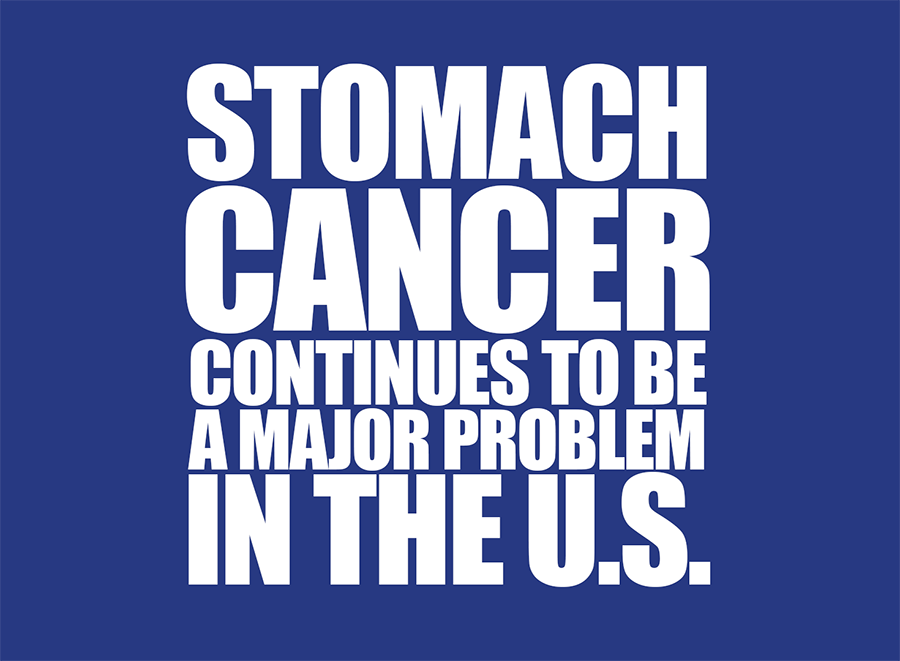
Dr. Anton Bilchik, Chief of General Surgery, Director of Gastrointestinal and Hepatobiliary Program and Research at Saint John’s Cancer Institute, Discusses Stomach Cancer.
In the US alone, stomach cancer is still a major problem because of obesity and Gastroesophageal reflex disease (GERD), says Dr. Bilchik. From 1999 to 2020, the obesity rate went up from 30.5 percent prevalence to 41.9 percent, and severe obesity increased as well from 4.7 percent to 9.2 percent.1 Subsequently, medical costs from obesity were 173 billion dollars, as of 2019. Obesity affects men more than women, and adults over the age of 60. In children and adolescents, about 14.7 million are affected by obesity.
The pattern for stomach cancer in the US is different than here. Japan and China have a high incidence of stomach cancers found at the end of the stomach, making them easy to treat. In the US, stomach cancers are found at the beginning of the stomach, near the esophagus.
– Anton Bilchik, MD
According to the Journal of Epidemiology, the “five-year relative survival [for gastric cancers] in Japan was 81.0%, compared with 45.0% in the United States.”
How Does GERD facilitate stomach cancers?
Dr. Anton Bilchik regards GERD as the likely culprit for US stomach cancers found at the beginning of the stomach, and that could be because of the number of antacids and proton pump inhibitors being taken nationally for acid reflux. According to The Journal of the Missouri State Medical Association, “Proton pump inhibitors are the most potent class of antacid medications. They are dosed once or twice daily and are most effective if taken 30 to 60 minutes prior to meals.” Every year, 150,000 adults and 56,000 kids will be diagnosed with GERD, with public drug programs spending $198.2 million for proton pump inhibitors, ranking the drug 7th when it comes to public drug program costs.4 The incidences of GERD may be correlated to diet.
Hear Dr. Anton Bilchik Candidly Discuss Diagnosis, Risks, and Prevention for Stomach Cancers
Renowned gastrointestinal surgeon, Dr. Anton Bilchik, chronicles stomach cancer, its challenges, risks, and treatment.
Can You Survive Without A Stomach?
According to Dr. Bilchik, “you don’t need a stomach to live a normal life.” If the entire stomach needs to be removed, the esophagus can be attached directly to the small intestines. People who have had their stomach removed function well and are pain-free. It is recommended that they should eat smaller meals throughout the day, which tends to reduce body weight.
How to Diagnose Stomach Cancer?
Diagnosis is performed by endoscopy, where a biopsy will be taken of tissue to determine cell malignancy. The staging of stomach cancer is conducted through imaging, such as a CT scan or MRI. These scans will determine if a cancer is localized or has metastasized (moved beyond the primary tumor site to other parts of the body).
Surgery is the best chance of cure for localized tumors.
– Anton Bilchik, MD
Randomized trials have revealed that giving chemotherapy before surgery for advanced tumors has a “survival advantage,” according to Dr. Bilchik. This is known as neoadjuvant therapy, where treatment takes place before the primary treatment. In this case, chemotherapy is utilized to shrink the tumor before surgery.
Resources
- Adult Obesity Facts | Overweight & Obesity | CDC
- Determinant Factors on Differences in Survival for Gastric Cancer Between the United States and Japan Using Nationwide Databases – PubMed (nih.gov)
- Gastroesophageal Reflux Disease (GERD) – PMC (nih.gov)
- GERD Statistics-33 Stats for Gerd (By Country) (restrightmattress.com)

